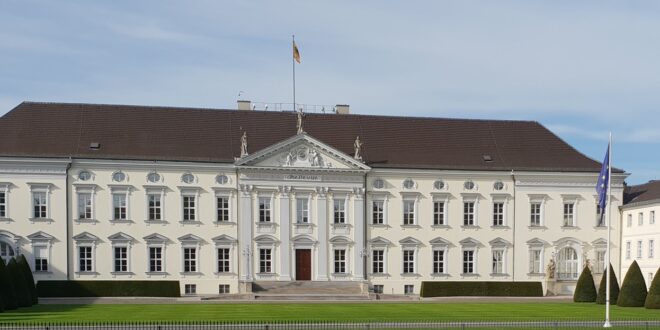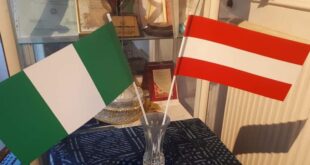- Slovenia, Ukraine and Serbia have the poorest presidents in Europe
- Heads of state across Europe usually earn four times the average salaries of their taxpayers and cost them €49.62 per hour
- Bulgaria, Slovakia and Ireland pay their presidents the most compared to average earners
Slovenia has the poorest president in Europe. Relative to average salaries, the presidents of Ukraine and Serbia follow closely as the second and third poorest on the continent. Across Europe, heads of state earn 4.1 times as much as the average earner and cost taxpayers €49.62 per hour.
This is according to a new study by Slot.Day, who analysed the average gross salaries, GDP per capita and presidents’ earnings across 31 countries in Europe. The researchers used the latest available data from national statistics offices and the Organisation for Economic Co-Operation and Development (OECD), ranging between 2022 and the third quarter of 2023. GDP data is sourced from the International Monetary Fund’s (IMF) World Economic Outlook, published in October 2023. Head of state income estimates are based on independent media reports, national legislation, government and presidency websites, income statements and official government communication.
Poorest presidents
Europe’s poorest president lives in Slovenia. The president earns almost as much as any average employee in the country. The head of state has an estimated gross annual income of €44,701, only 3% higher than the current average salary in Slovenia – €43,342. An hour of the president’s time costs taxpayers €23.41 before deductions – one of the top 10 cheapest hourly pays for presidents in Europe. Slovenia is a country of medium wealth, whose GDP per capita (US$32,350) is slightly below the European average of US$34,710 for 2023, according to IMF estimates. The Slovenian president’s work is worth 1.5 of the country’s GDP per capita.
Ukraine has the second lowest-paid president in Europe, relative to other average earners in the country. Based on official government communication, the Ukrainian president’s gross annual salary in 2023 was only €8,134, which is 1.63 worth of any average earner in the country. This is the lowest pay of any president in Europe, costing Ukrainian taxpayers only €4.26 per hour, before deductions, to carry out all their duties as head of state. Ukraine’s current GDP per capita is also the lowest in Europe, estimated at €5,245 for 2023. The president earns only 70% above that.
Serbia’s president is the third poorest in Europe. With an hourly compensation of just €10.77, before tax, the head of state earns €20,564 per year. This is worth only 1.68 of the average salary in Serbia, estimated at €12,258. Serbia’s GDP per capita is the eighth lowest in Europe (US$11,301), and the president’s salary is almost double this amount.
The presidents of Lithuania and Montenegro earn under two average salaries in their countries, while those in Croatia and Moldova earn just above this level. Finland, Latvia and Bosnia and Herzegovina complete the top 10 poorest presidents of Europe. Finland is the only country in Slot.Day’s ranking whose GDP per capita (US$54,507) is well above the European average (US$34,710).
Richest presidents
The richest presidents in Europe live in Bulgaria, Slovakia and Ireland when comparing their official incomes to average salaries.
Bulgaria’s president is the richest in Europe, relative to average earners in the country. Local media in Bulgaria estimates that the president’s salary is equivalent to €124,658 per year, before deductions, including a 1.6% top-up based on years of experience. This is 10.1 times more than the average salary of €12,342. Bulgaria’s GDP per capita is the 11th lowest in Europe, estimated at US$16,087 for 2023. The president earns 8.44 this amount.
Though significantly richer than Bulgaria, Slovakia pays its president 7.78 average salaries. This makes Slovakia’s head of state the second richest in Europe, with an estimated gross income of €187,587 per year. Slovakia’s GDP per capita (US$24,471) is over US$10,000 below Europe’s average. The president earns 8.35 times the amount of Slovakia’s GDP per capita.
The president of Ireland is the third richest in Europe, relative to average salaries. Full-time employees in Ireland earned an estimated €47,967 in 2023, whereas the president earned 6.91 times more, totalling €331,470 per year. Importantly, however, Ireland is one of the wealthiest economies in Europe. With a GDP per capita of US$112,248 – the highest of all the evaluated European countries, its president officially earns 3.22 this amount. Therefore, compared to GDP per capital, Ireland’s president’s salary is, in fact, in the top ten lowest relative to the country’s overall wealth.
Cyprus and Switzerland have the next richest heads of state in Europe, relative to average wages. The latter also has the highest hourly pay for a head of state in Europe, irrespective of country wealth, estimated at €285.46, before tax.
On average, presidents in Europe earn €103,200 per year, before deductions. This is worth 4.06 average salaries, based on the median estimate among the 31 countries that have a president, as evaluated in this study. Their gross hourly pay averages to €49.62.
Michael Slot, main author and journalist at Slot.Day, commented on the findings:
“While a head of state’s role is generally very limited in power, some presidents’ salaries appear to be disproportional to their real-life workload, how wealthy or poor the country is and how much other average citizens earn. We understand that high-ranking officials’ salaries are subject to heated political debate, especially in less wealthy nations. Still, we strongly encourage more transparency as a sign of good governance.
“If your president’s salary is more than four times your salary, it is time to ask some questions. If it is below that, they probably deserve a raise, in order to align with their European counterparts.”
The study was carried out by Slot.Day, an online catalogue for slots and game reviews.
© Journo Research
 THE AFRICAN COURIER. Reporting Africa and its Diaspora! The African Courier is an international magazine published in Germany to report on Africa and the Diaspora African experience. The first issue of the bimonthly magazine appeared on the newsstands on 15 February 1998. The African Courier is a communication forum for European-African political, economic and cultural exchanges, and a voice for Africa in Europe.
THE AFRICAN COURIER. Reporting Africa and its Diaspora! The African Courier is an international magazine published in Germany to report on Africa and the Diaspora African experience. The first issue of the bimonthly magazine appeared on the newsstands on 15 February 1998. The African Courier is a communication forum for European-African political, economic and cultural exchanges, and a voice for Africa in Europe.






























